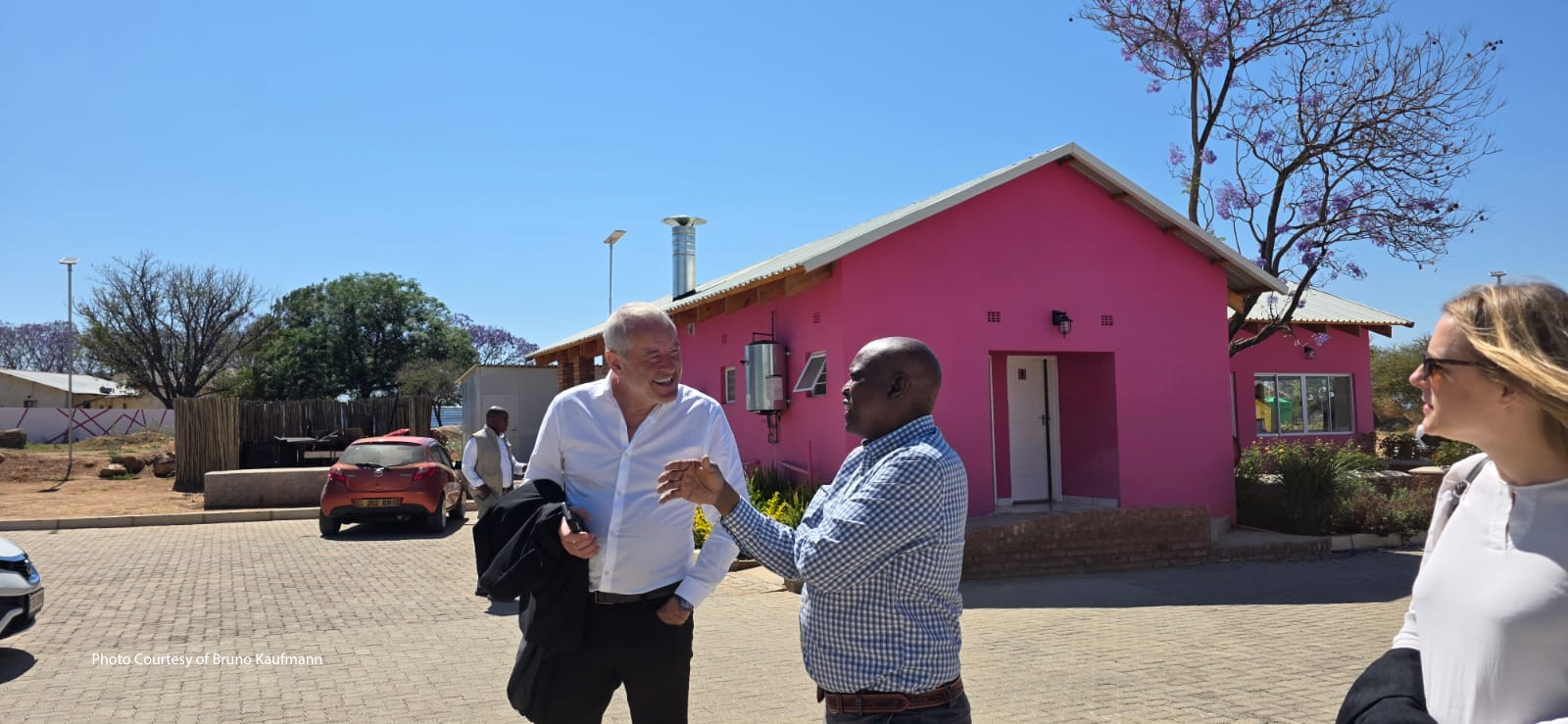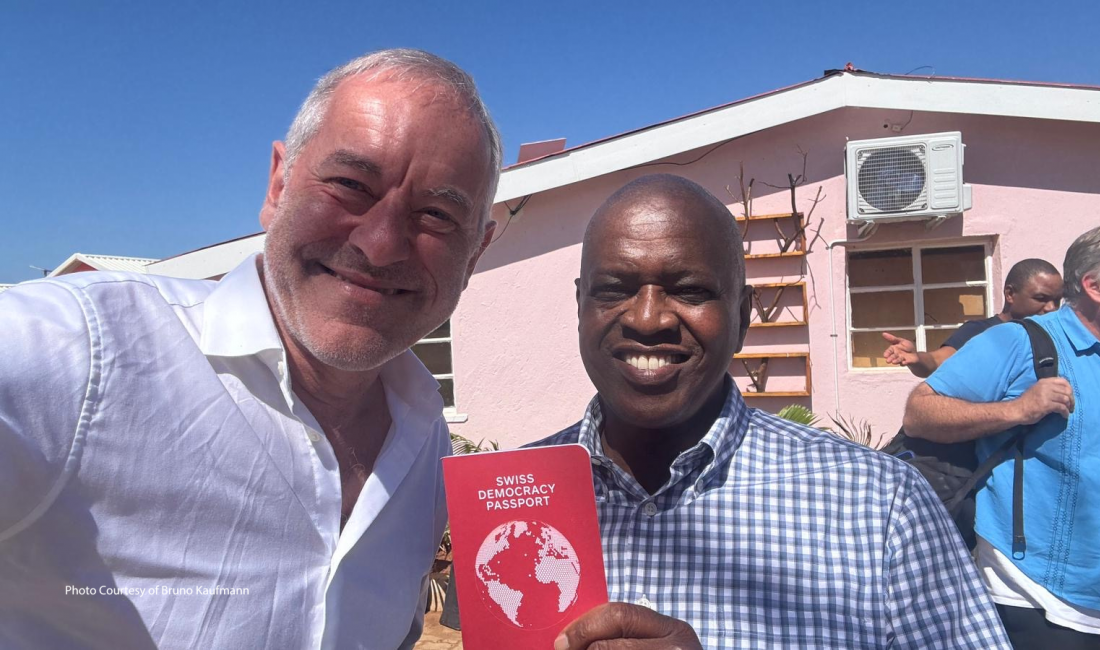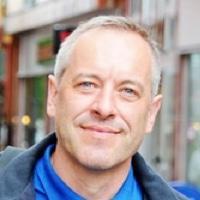To Visit a Former Botswana President, and Reflect on a Country as Old As He Is
This is the latest in a regular feature, "Where in the World Is Bruno Kaufmann?" The piece offers the democracy reporter and supporter's reflections from his global travels on behalf of Swiss Broadcasting, the Swiss Democracy Foundation, and the Global Forum.
I’m the same age as Botswana. My next birthday is my 60th, and so is Botswana’s. Next year, this country will celebrate its diamond anniversary, which is 60.
Seeing that a country of my same age has made such an imprint on the history of democracy, and created stability in this part of the world, is a discovery for me.
Seeing Botswana and going here also showed me there are so many similarities to my home country of Switzerland. Both are landlocked countries. Both are countries that big powers weren’t historically interested in. Both have found ways to keep a space for local communities over time to develop in an unbroken way.
Both have avoided wars. Most countries that I visit have these kind of war traumas, externally and internally, where people were forced to move. Like the Baltic countries which 100 years ago were as rich as Switzerland, and then had all these struggles, violence, deportation. But Botswana is not like that. And not having this history of war trauma creates a society where a lot of trust is present and a lot of thought is further to future generations.
And both countries are engaged with others, and working on shared challenges in a proactive way. In a globalized, digitized world, it’s not enough to be a nice island in a rocky sea.
Meeting here in Moshupa with the former president, Mokgweetsi Masisi, and his team to see how well this is understood in Botswana. In talking with him, we see that we can work, and need to work much more together to share and develop these universal values of democratic participation and human rights. His vision of democracy is not defined by a single election but by continuous participation and making voices heard.
This is why our Global Forum on Modern Direct Democracy is coming here next year. We’re here in Moshupa and in Botswana to prepare. Many open questions remain about the event. Coming here for a few days only gives a few insights.
Maybe one of those takeaways is that we need to become better at sharing what we see and experience in a more proactive way. It’s too easy to hide behind humbleness; people think that because we are a small town or a small country, that people are not interested in the work we’re doing, or the ways that we’re doing it. But in my global travels, I’ve learned that people everywhere are quite interested in how things work. They would lose to understand the possibilities of the democracy and stability achieved here in Botswana.
This universality appears in the UN charter. Everyone has the right to be part of their own government. The big nations of the world are not any better at employing these principles, of practicing this right of self-government, than the small. Only two percent of the world’s population now lives in full democracies. That’s very little.
We know from the work of International IDEA and V-Dem and other rankings that, in the recent years since 2008, democracy hasn’t improved so much. This is why Joe [Mathews] and I are looking here in Moshupa, and at local and regional levels around the world, into democracy developments that are not really covered in those global and national rankings.





